Norala Sound Studio
NORALA SOUND STUDIO
104 E. 2nd St., Sheffield, AL
In 1965, FAME songwriter and WLAY disc jockey Quin Ivy opened Norala Recording Studio in downtown Sheffield, across the street from the Tune Town record store (which Ivy also owned). The fledgling studio was technically a competitor, but FAME owner Rick Hall had given the new venture his blessing.
“I saw that Rick was getting a lot of calls from people who were interested in making a record. Rick would give them some outlandish price because he just didn’t have time to fool with them.”
—Quin Ivy
Seeing an opportunity to take some of this unwanted business off Hall’s hands, Ivy proposed opening his own studio, “and Rick said he thought it was a great idea.” Hall even let Ivy borrow FAME’s rhythm section, although Ivy had to compensate the musicians in free studio time initially because he didn’t have the money to pay them. “I had a total investment in that studio of $7,000,” Ivy later recalled. “It was put together on a shoestring.”
Norala’s fortunes began to change when, in late 1965, Ivy and his partner Marlin Greene cut Percy Sledge’s “When a Man Loves a Woman” at the studio.
“We cut [it] in mono on a little two-track machine with me engineering… Roger Hawkins played drums, along with the rest of the Fame section from those days: Spooner Oldham on organ, Junior Lowe on bass, and Marlin [Greene] on guitar. I don’t think I ever got a dime for that session… but I was very glad to be on the date.”
—Jimmy Johnson
“Quin called and said he had a song he wanted me to hear. I had him bring it over here one Sunday and play it, and he asked me, ‘What do you think?’ I had him play it again. I said, ‘It’s a smash.’”
—Rick Hall
Hall turned out to be right, of course. Atlantic Records issued the single in February 1966, and it became a runaway success, spending two weeks at the top of the pop charts, and topping the R&B charts for four weeks.
Now a million-selling producer, Ivy again took a cue from Rick Hall and established his own record labels, Quinvy and South Camp, both of which were distributed by Atlantic. Eventually, Ivy was able to build a larger, more modern facility at 1307 Broadway Street, and moved his newly rechristened Quinvy Recording Studio there in mid-1968.
The following year, Ivy sold the 2nd Street building to Billy Cofield, who had played saxophone on “When a Man Loves a Woman.” Cofield and his partner, James Thomas, then reopened the facility as Paradox Recording Studio. The venture was short-lived, however, and in 1973, Muscle Shoals Sound Studio leased the building and converted it into a writer’s workshop and demo studio. The Swampers initially planned to call the new studio 104 East Second Street, but it came be known officially as Muscle Shoals Sound Studio B. Outfitted with a 16-track recorder and mixing board, the studio even had its own rhythm section, comprised of Lenny LeBlanc on bass, Randy McCormick on keyboards, and Jimmy Evans on drums.
The original Quinvy building on 2nd Street in Sheffield no longer stands. Its location is commemorated by an Alabama Tourism Department historical marker, erected in 2014.
Personnel
Owners:
• Quin Ivy (1965-1968)
• Bill Coffield (1969-1972)
• James Thomas (1969-1972)
Producers:
• Quin Ivy
• Marlin Greene
Musicians:
• Jeanie Greene (vocals, 1965-1968)
• Donna Thatcher (vocals, 1965-1966)
• Marlin Greene (guitar, 1965-1968)
• Roger Hawkins (drums, 1965-1968)
• Spooner Oldham (keyboards, 1965-1967)
• Barry Beckett (keyboards, 1967-1968)
• Eddie Hinton (guitar, 1967-1968)
• Lenny LeBlanc (bass, 1973- )
• Randy McCormick (keyboards, 1973- )
• Jimmy Evans (drums, 1973- )
Discography
1965:
• The Mosriters, “On the Run”
• The Mosriters, “Treat Her Right”
• Mickey Buckins, “Silly Girl”
1966:
• Percy Sledge, “When a Man Loves a Woman”
• Percy Sledge, When a Man Loves a Woman
• Percy Sledge, “Warm and Tender Love”
• Percy Sledge, “It Tears Me Up”
• Percy Sledge, Warm and Tender Soul
1967:
• Percy Sledge, “Baby Help Me”
• Percy Sledge, “It Can't Be Stopped”
• Percy Sledge, “Love Me Tender”
• Don Varner, “Down in Texas”
• Ted Taylor, “Feed the Flame”
• Percy Sledge, “Just Out of Reach”
• Percy Sledge, “Pledging My Love”
• Percy Sledge, “Cover Me”
• Demon Brothers, “Living High on the Hog”
• Zamar and Tyran, “I Live in Your Love”
• Al Johnson, “Bless Your Little Soul”
• Mickey Buckins and the New Breed, “Seventeen Year Old Girl”
• Mickey Buckins and the New Breed, “Reflections of Charles Brown”
• Tony Borders, “You Better Believe It”
• The Wee Juns, “Out of the Clear Blue Sky”
• Ben E. King, “Don't Take Your Sweet Love Away from Me”
• Bobby Heathcote, “Destroyed”
• Eddy Mitchell, De Londres a Memphis*
• Percy Sledge, The Percy Sledge Way
1968:
• Percy Sledge, “Take Time to Know Her”
• Percy Sledge, “Sudden Stop”
• Bill Brandon, “Rainbow Road”
• Tony Borders, “Cheaters Never Win”
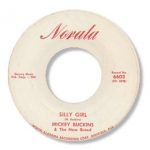
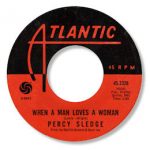
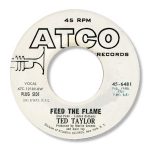
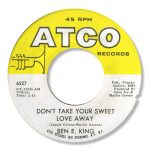
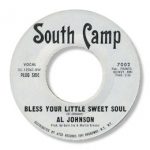
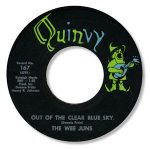
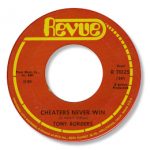
Sources:
Christopher S. Fuqua, Music Fell on Alabama (Huntsville: Honeysuckle Imprint, 1991).
Crispin Cioe, High Fidelity, November 1, 1980.
Dick Cooper, Times Daily, c. 1972-1974.
Russ Corey, Times Daily, February 23, 2018.
Terry Pace and Robert Palmer, Times Daily, August 1, 1999.
John Ridley, “Quin Ivy and His Norala and Quinvy Studios,” Sir Shambling’s Deep Soul Heaven.




